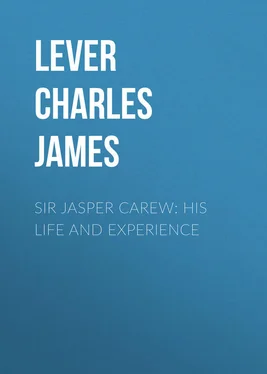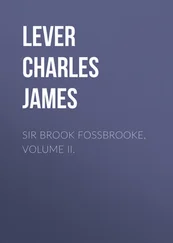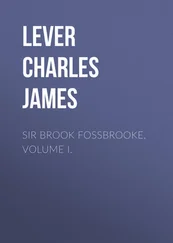Charles Lever - Sir Jasper Carew - His Life and Experience
Здесь есть возможность читать онлайн «Charles Lever - Sir Jasper Carew - His Life and Experience» — ознакомительный отрывок электронной книги совершенно бесплатно, а после прочтения отрывка купить полную версию. В некоторых случаях можно слушать аудио, скачать через торрент в формате fb2 и присутствует краткое содержание. Жанр: literature_19, foreign_antique, foreign_prose, на английском языке. Описание произведения, (предисловие) а так же отзывы посетителей доступны на портале библиотеки ЛибКат.
- Название:Sir Jasper Carew: His Life and Experience
- Автор:
- Жанр:
- Год:неизвестен
- ISBN:нет данных
- Рейтинг книги:5 / 5. Голосов: 1
-
Избранное:Добавить в избранное
- Отзывы:
-
Ваша оценка:
- 100
- 1
- 2
- 3
- 4
- 5
Sir Jasper Carew: His Life and Experience: краткое содержание, описание и аннотация
Предлагаем к чтению аннотацию, описание, краткое содержание или предисловие (зависит от того, что написал сам автор книги «Sir Jasper Carew: His Life and Experience»). Если вы не нашли необходимую информацию о книге — напишите в комментариях, мы постараемся отыскать её.
Sir Jasper Carew: His Life and Experience — читать онлайн ознакомительный отрывок
Ниже представлен текст книги, разбитый по страницам. Система сохранения места последней прочитанной страницы, позволяет с удобством читать онлайн бесплатно книгу «Sir Jasper Carew: His Life and Experience», без необходимости каждый раз заново искать на чём Вы остановились. Поставьте закладку, и сможете в любой момент перейти на страницу, на которой закончили чтение.
Интервал:
Закладка:
The small drawing-room that adjoined my mother’s dressing-room was the only exception to this almost prison discipline; and there she now sat with Polly, MacNaghten, Rutledge, and one or two more, the privileged visitors of that favored spot, – my mother at her embroidery-frame, that pleasant, mock occupation which serves so admirably as an aid to talking or to listening, which every Frenchwoman knows so well how to employ as a conversational fly-wheel. They assuredly gave no evidence in their tone of that depression which the gloomy weather had thrown over the other guests. Laughter and merriment abounded; and a group more amusing and amused it would have been difficult to imagine. Rutledge, perhaps, turned his eyes towards the door occasionally, with the air of one in expectation of something or somebody; but none noticed this anxiety, nor, indeed, was he one to permit his thoughts to sway his outward actions.
“The poor Duke,” cried MacNaghten, “he can bear it no longer. See, there he goes, in defiance of rain and wind, to take his walk in the shrubbery!”
“And mon pauvre mari – go with him,” said my mother, in a tone of lamentation that made all the hearers burst out a-laughing. “Ah, I know why you Irish are all so domestic,” added she, – “c’est le climat!”
“Will you allow us nothing to the credit of our fidelity, – to our attachments, madame?” said Rutledge, who, while he continued to talk, never took his eyes off the two figures, who now walked side by side in the shrubbery.
“It is a capricious kind of thing, after all, is your Irish fidelity,” said Polly. “Your love is generally but another form of self-esteem; you marry a woman because you can be proud of her beauty, her wit, her manners, and her accomplishments, and you are faithful because you never get tired in the indulgence of your own vanity.”
“How kind of you is it, then, to let us never want for the occasion of indulging it,” said Rutledge, half slyly.
“I don’t quite agree with you, Miss Polly,” said Mac-Naghten, after a pause, in which he seemed to be reflecting over her words; “I think most men – Irishmen, I mean – marry to please themselves. They may make mistakes, of course, – I don’t pretend to say that they always choose well; but it is right to bear in mind that they are not free agents, and cannot have whom they please to wife.”
“It is better with us,” broke in my mother. “You marry one you have never seen before; you have nothing of how you call ‘exultation,’ point des idées romantiques; you are delighted with all the little ‘soins’ and attentions of your husband, who has, at least, one inestimable merit, – he is never familiar.”
“How charming!” said Rutledge, with mock seriousness.
“Is it not?” continued she, not detecting the covert irony of his tone; “it is your intimité, – how you call it?”
“Intimacy.”
“Oui,” said she, smiling, but not trusting herself to repeat the word. “C’est cela, – that destroys your happiness.”
“Egad! I ‘d as soon be a bachelor,” broke in MacNaghten, “if I only were to look at my wife with an opera-glass across the theatre, or be permitted to kiss her kid glove on her birthday.”
“What he say, – why you laugh?” cried my mother, who could not follow the rapidity of his utterance.
“Mr. MacNaghten prefers homeliness to refinement,” said Polly.
“Oui, you are right, my dear,” added my mother; “it is more refined. And then, instead of all that ‘tracasserie’ you have about your house, and your servants, and the thousand little ‘inconvenance de ménage,’ you have one whom you consult on your toilette, your equipage, your ‘coiffure,’ – in fact, in all affairs of good taste. Voilà Walter, par exemple: he never dérange me for a moment, – I hope I never ennuyé him.”
“Quite right, – perfectly right,” said Polly, with a well-assumed gravity.
“By Jove, that’s only single harness work, after all,” said MacNaghten; “I’d rather risk a kick, now and then, and have another beside me to tug at this same burden of daily life.”
“I no understand you, you speak so fast. How droll you are, you Irish! See there, the Lord Duke and my husband, how they shake hands as if they did not meet before, and they walk together for the last half-hour.”
“A most cordial embrace, indeed,” said Polly, fixing her eyes on Rutledge, who seemed far from being at ease under the inspection, while MacNaghten, giving one hasty glance through the window, snatched up his hat and left the room. He passed rapidly down the stairs, crossed the hall, and was just leaving the house when my father met him.
“The very man I wanted, Dan,” cried he; “come to my room with me for a few minutes.”
As they entered the room, my father turned the key in the door, and said, —
“We must not be interrupted, for I want to have a little talk with you. I have just parted with the Duke – ”
“I know it,” broke in Dan, “I saw you shake hands; and it was that made me hurry downstairs to meet you.”
My father flushed up suddenly, and it was not till after a few seconds he was collected enough to continue.
“The fact is, Dan,” said he, “this gathering of the clans has been a most unlucky business, after all. There’s no telling how it might have turned out, with favorable weather and good sport; but caged up together, the menagerie has done nothing but growl and show their teeth; and, egad! very little was wanting to have set them all by the ears in open conflict.”
MacNaghten shrugged his shoulders, without speaking.
“It’s an experiment I ‘ll assuredly never try again,” continued my father; “for whether it is that I have forgotten Irishmen, or that they are not what they used to be, but all has gone wrong.”
“Your own fault, Watty. You were far too anxious about it going right; and whenever a man wants to usurp destiny, he invariably books himself for a ‘break down.’ You tried, besides, what no tact nor skill could manage. You wanted grand people to be grand, and witty people to be witty, and handsome people to look beautiful. Now, the very essence of a party like this is, to let everybody try and fancy themselves something that they are not, or at least that they are not usually. Your great folk ought to have been suffered to put off the greatness, and only be esteemed for their excessive agreeability. Your smart men ought not to have been called on for pleasantry, but only thought very high-bred and well-mannered, or, what is better still, well-born. And your beauties should have been permitted to astonish us all by a simplicity that despised paint, patches, and powder, and captivate us all, as a kind of domestic shepherdesses.”
“It’s too serious for jesting about, Dan; for I doubt if I have not offended some of the oldest friends I had in the world.”
“I hope not,” said MacNaghten, more seriously.
“I am sadly afraid it is so, though,” said my father. “You know the Fosbrokes are gone?”
“Gone? When? I never heard of it!”
“They ‘re gone. They left this about an hour ago. I must say it was very absurd of them. They ought to have made allowances for difference of country, habits, education; her very ignorance of the language should have been taken as an excuse. The Tisdalls I am less surprised at.”
“Are they gone too?”
“Yes! and without a leave-taking, – except so far as a very dry note, dated five o’clock in the morning, may be taken for such, telling of sudden intelligence just received, immediate necessity, and so forth. But after Harvey Hepton, I ought to be astonished at nothing.”
“What of Harvey?” cried Dan, impatiently.
“Why, he came into my room while I was dressing, and before I had time to ask the reason, he said, —
Читать дальшеИнтервал:
Закладка:
Похожие книги на «Sir Jasper Carew: His Life and Experience»
Представляем Вашему вниманию похожие книги на «Sir Jasper Carew: His Life and Experience» списком для выбора. Мы отобрали схожую по названию и смыслу литературу в надежде предоставить читателям больше вариантов отыскать новые, интересные, ещё непрочитанные произведения.
Обсуждение, отзывы о книге «Sir Jasper Carew: His Life and Experience» и просто собственные мнения читателей. Оставьте ваши комментарии, напишите, что Вы думаете о произведении, его смысле или главных героях. Укажите что конкретно понравилось, а что нет, и почему Вы так считаете.











